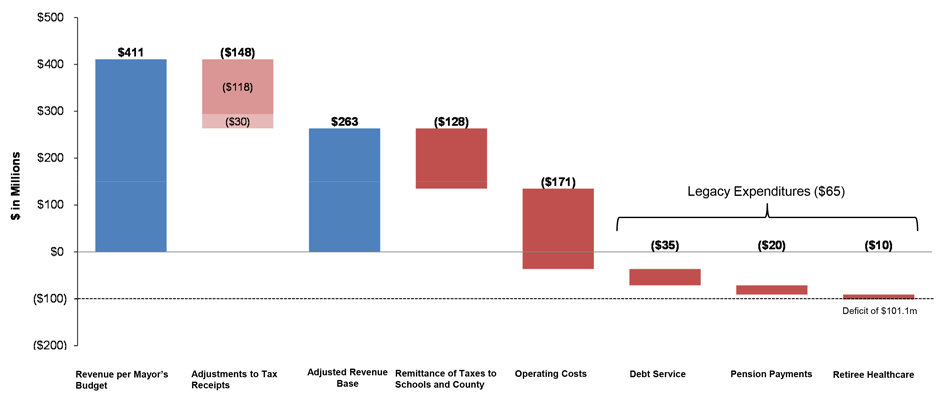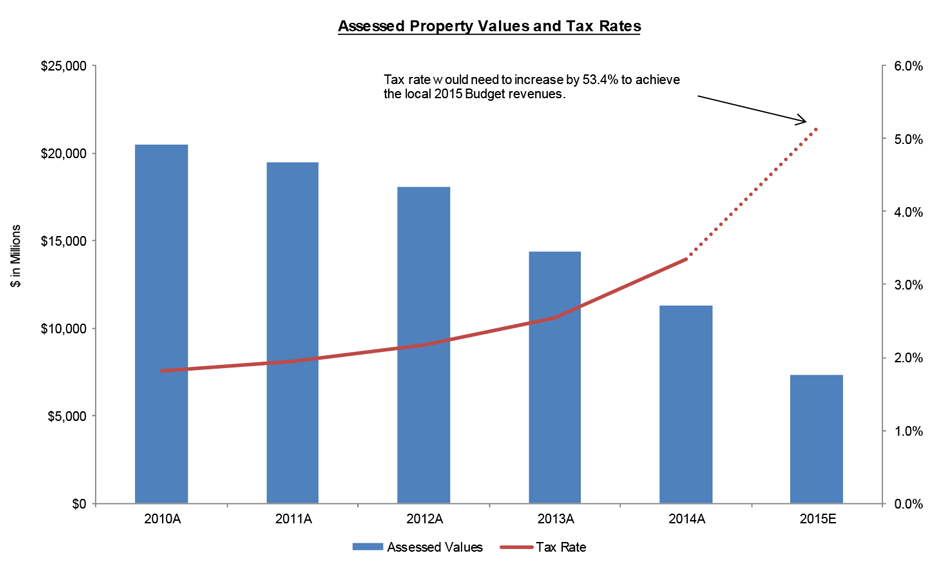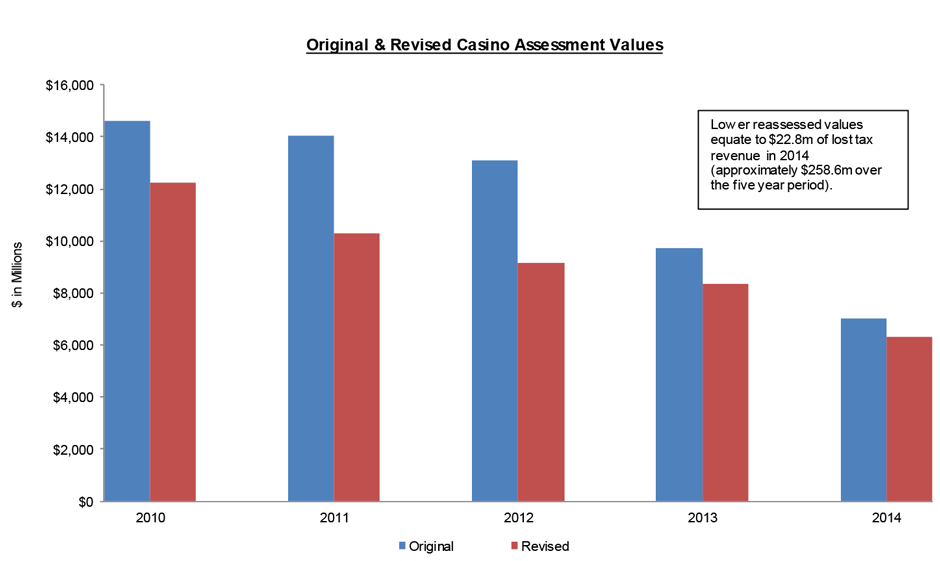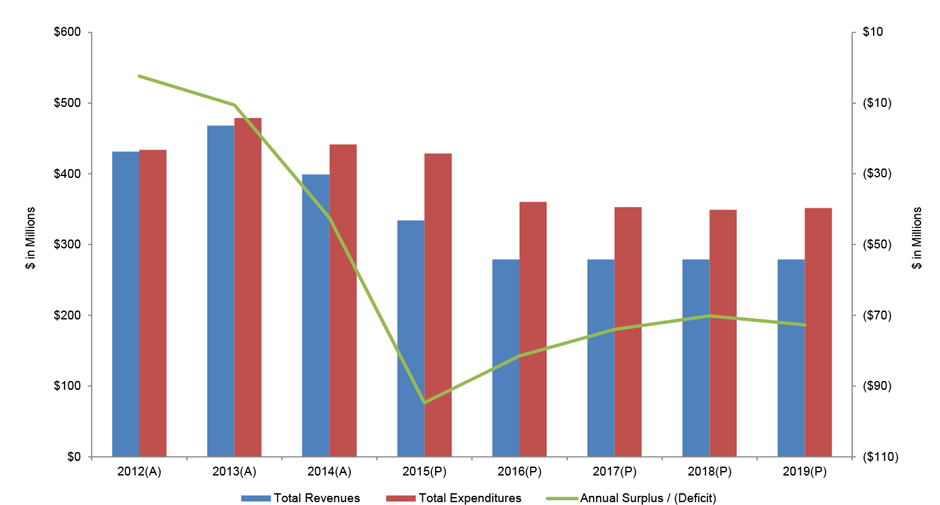5 Charts That Show Just How Screwed Atlantic City Is

Atlantic City in February 2015 (Photo | Dan McQuade)
On Tuesday, Atlantic City’s Chris Christie-appointed emergency management team released its first report. The results were grim.
“The acute financial distress facing the City is imminent and the causes of such distress are not transitory,” emergency manager Kevin Lavin wrote in the report. “Absent an urgent, material realignment of revenues and expenses, this crisis will rapidly deepen and will threaten the City’s ability to deliver and maintain essential government services impacting the health, safety and welfare of its residents.” Christie’s executive order required Lavin and consultant Kevyn Orr, who handled Detroit’s bankruptcy, to issue a report within 60 days.
“It’s actually a lot more severe than we thought when we started 60 days ago,” Lavin said, though he and Orr said bankruptcy was not being considered. Atlantic City has a $101 million city budget shortfall and a $47 million deficit in the school district. The managers recommended $10 million in city cuts, including hundreds of layoffs, and appointing mediators to work with casinos and unions.
New Jersey State Senate president Steve Sweeney lambasted the report: “This report does nothing more than dramatize the fiscal crisis in Atlantic City … Today’s report was 60 days in the making and it reached the same conclusions that we did in November: that decisive action is needed to stabilize Atlantic City’s finances, reduce expenses, protect local taxpayers and reposition the casino industry for future growth.” Sweeney has proposed his own plan that includes a PILOT (payment in lieu of taxes) program for the casinos.
Sweeney is right: The report does dramatize Atlantic City’s fiscal crisis. You can read it at the end of this post. But since it’s essentially just a stop-gap report — another one is due in 90 days — let’s take a look at some of its charts that illustrate the bad shape A.C. is in.

Sources: 2015 budget and city information
Good news: Atlantic City still takes in $411 million in revenue! The bad news: It has to spend more than this.

Sources: City tax rates (as provided by the city), (“Abstract of Ratables for Atlantic County” 2010 — 2014)
Property values have plummeted in the last five years. Atlantic City had a tax increase of 29 percent in 2014, but the report only recommended a minimal property tax hike this year.

Source: A-20 COAC Appendix A info from proposed bond issuance on January 9th, 2015.
Casino values have fallen as well. More than $250 million has been lost in tax revenue. That’s part of the plan behind the PILOT proposal: The payments would give Atlantic City a set stream of revenue each year. One of Sweeney’s bills says it would “help to stabilize the casino business models and the workforce required to run those business models, and the casino gaming properties will be better able to compete with out-of-state casino gaming properties in the region.”

Audited Financial Statements (2010 — 2013), Annual Financial Statement for the Year 2014 (unaudited); State of New Jersey – Annual Debt Statement, Audit Report – Schedules “C-8a” and “C-8b,” management discussions
The city’s debt, also, continues to rise — much of it from casino tax appeals.

Source: Annual Audited Financial Statements, 2014 Annual Financial Statement, 2015 Budget, City Assessor information
It all ends in this: The report predicted a $393 million deficit over the next five years absent significant changes to Atlantic City’s situation (financial aid, big budget cuts).
A full copy of the report is below.
Atlantic City emergency manager 60-day report report


